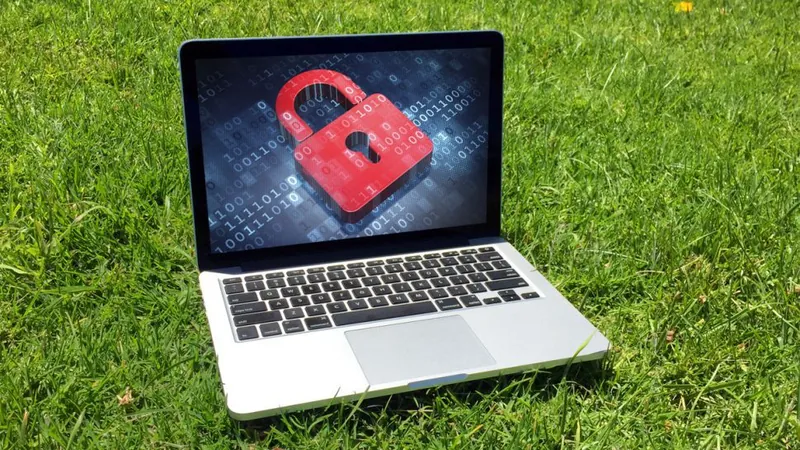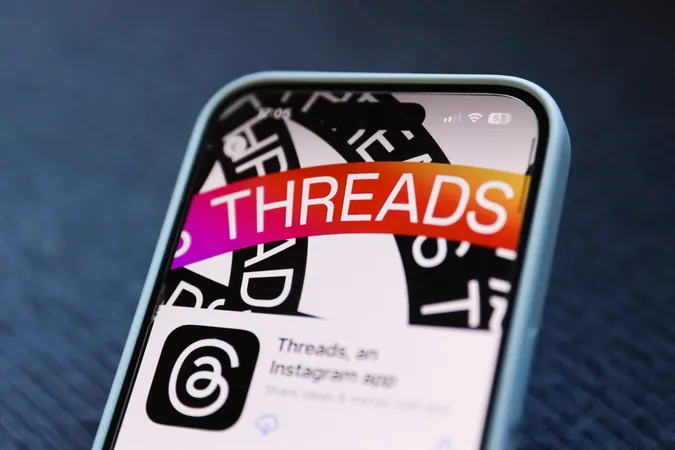
Alarming Shift: NotLockBit Ransomware Strikes Apple Users, Pushing the Boundaries of Cyber Threats
2024-12-15
Author: Nur
In a shocking new development, macOS users are now facing a serious ransomware threat known as NotLockBit, marking a notable shift in the targeting strategies of cybercriminals who have largely focused on Windows and Linux platforms for years. This alarming trend has cybersecurity experts on high alert as the notorious strain, named after the infamous LockBit, suggests that Apple’s iconic ecosystem is no longer safe from sophisticated ransomware attacks.
The Rise of macOS NotLockBit
Discovered by researchers at Trend Micro and analyzed by SentinelLabs, NotLockBit malware is capable of both file-locking and data exfiltration, posing significant risks to unsuspecting Mac users. Historically, ransomware targeting Mac devices has been limited, largely due to the effectiveness of Apple’s built-in security measures like Transparency, Consent, and Control (TCC) protections. However, the emergence of NotLockBit highlights how malicious actors are evolving, crafting increasingly sophisticated tools aimed at breaching Apple’s defenses.
Unlike previous iterations of ransomware targeting Mac, which failed to effectively lock files or extract data, NotLockBit operates with a level of expertise that raises serious concerns. The threat specifically targets Intel-based Macs as well as newer Apple silicon Macs running Rosetta emulation software, allowing it to execute x86_64 binaries seamlessly.
How NotLockBit Works
Upon execution, NotLockBit gathers extensive system information, including the product version and architecture, while also recording uptime since the last system reboot. One of its most sinister features involves exfiltrating sensitive data to a remote server via Amazon Web Services (AWS) S3 storage, significantly complicating any attempts at recovery. Utilizing asymmetric encryption ensures that files are securely locked, with decryption largely impossible without the attacker's private key.
Once the files are locked, victims are met with a README.txt file within their encrypted directories, which include an “.abcd” extension for the compromised files. This README not only informs victims about the situation but also outlines how they can recover their data—typically through payment of a ransom. In more recent versions, NotLockBit even takes on a LockBit-themed desktop wallpaper, emphasizing its connection to the notorious LockBit ransomware group.
The Protective Shield of TCC
Fortunately, Apple’s TCC protections still offer a formidable barrier against NotLockBit, as they compel user consent for accessing sensitive directories and controlling various system events. While this protection complicates the ransomware’s full operational capacity, experts warn that it may only be a matter of time before hackers devise strategies to bypass these safeguards.
Current insights from cybersecurity researchers indicate that while there are no confirmed cases of infected users so far, the rapidly evolving nature of the malware hints at a significant threat on the horizon. With each new sample of NotLockBit featuring improved and sophisticated capabilities—including integrated data exfiltration—it's clear that the attackers are committed to enhancing their methods.
Continued Threat and Research Findings
SentinelLabs has detected multiple versions of NotLockBit, suggesting that it remains actively developed and refined. Early iterations focused on simple encryption, but later updates incorporated advanced mechanisms for data theft. Even more concerning, the most recent version requires macOS Sonoma, indicating that the attackers are keenly targeting the latest iterations of macOS, which may expose users to heightened risks.
As if that wasn’t alarming enough, the malware developers are experimenting with code obfuscation techniques, hinting at an ongoing effort to elude detection by antivirus software. This proactive approach further emphasizes the urgent need for Mac users to remain vigilant about their security practices.
In light of these worrying trends, experts urge Mac users to bolster their cybersecurity protocols, remain cautious about suspicious downloads, and keep their systems updated to mitigate the risk of falling victim to ransomware attacks like NotLockBit.



 Brasil (PT)
Brasil (PT)
 Canada (EN)
Canada (EN)
 Chile (ES)
Chile (ES)
 España (ES)
España (ES)
 France (FR)
France (FR)
 Hong Kong (EN)
Hong Kong (EN)
 Italia (IT)
Italia (IT)
 日本 (JA)
日本 (JA)
 Magyarország (HU)
Magyarország (HU)
 Norge (NO)
Norge (NO)
 Polska (PL)
Polska (PL)
 Schweiz (DE)
Schweiz (DE)
 Singapore (EN)
Singapore (EN)
 Sverige (SV)
Sverige (SV)
 Suomi (FI)
Suomi (FI)
 Türkiye (TR)
Türkiye (TR)